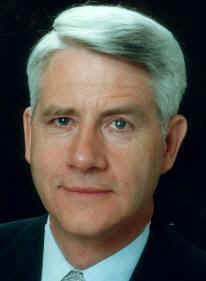I've gone through the "Curly Questions" thread and culled out the questions. Please let me know if your question is not duplicated correctly or is missing. There are more than 10, but I will answer them all to the best of my ability. On reflection, I will answer them out of the order written and may group one or two similar questions together. I will start working my way through them in the next day or two. Thanks for the great response.
I must also emphasise, that while I am an ACT Party official, my answers are not ACT policy, unless actually stated. Philosophically and economically I'm a libertarian, but ACT is not a libertarian party. There are many libertarians in ACT, but there are also conservatives, Classic liberals and social democrats. We are united around some common planks, such as low tax, school choice, more private health and welfare provision, protection of property rights and the reduction of red tape. There are also many areas where ACT members diagree.
My answers will express my ideals. I'm sure many will be shared by some ACT members, but that's all I can guarantee.
Sonic Why you cannot rely on the market to deliver health care, emergency services, defence, social security....
Berend de Boer said...
Auckland has many volcano's which give the city a lot of charm. And there are no buildings on it so you can actually see them.
What alternatives are there to government controls?
We have of course the common law, but would that be sufficient?
Related to that are high rise buildings. I like to be able to see far and wide, and Auckland offers a lot of that. On the other hand, I wouldn't mind a few more high rise buildings in Manukau City center, there are already some and it doesn't seem to spoil the view.
I wonder how and if these things would survive if there were no government controls on these things whatsoever.
Blair Trevor, do you think that there is a place for publicly owned land ie. parks and roads, or do you think it is possible for society to work well with only private ownership of these things?
I have an open mind on these things and would be interested in your perspective.
Steve Where does Profit come from?
squirrel How would a free market model deal with human caused environmental problems, specifically those which the individual is unlikely to care about eg a farmer who is degrading his land over the long term. Or an individual who's lifestyle is contributing to long tetm environmental change
Anonymous I consider myself pro-market, but often wonder about harm from large private companies. The giants (McDonalds, etc) sell shitty food so I don't eat it. But millions do, they get fat/unhealthy and die. I don't like "solutions" like Green's proposal to regulate food advertising, but at the same time I don't like that companies can do so well selling harmful products. The mental reconciliation I've come to is that people who are too lazy or stupid to eat properly bring it upon themselves, with (maybe) some blame accorded to a lack of rules/enforcement about what is actually in food. I'm not sure I'm satisfied with my answer, so what do you think?
Also, how does the situation of a child who has one of the aforementioned lazy/stupid people as a parent fit into this? Should a parent have the freedom to raise the fat little porkers I see in the supermarket? (They seem to at the moment!)
Anonymous Trevor,you would accept that competition between firms and corporations is a fact of free market national capitalisms. Many of these have states to protect their interests. But what happens when different nation states compete over resources. Is war not just an extension of this economic competition?
byron I could probably think of a few if I thought long enough; I'll start with just one:
Network neutrality; this is something causing a stir about the online community, for-profit content providers (movie studios, record companies, software companies etc) want to pay Internet Service Providers to prioritise their content on the net (meaning it will be delivered to users faster than other content) this disadvantages non-profit content providers such as free/open-source software sites, the Internet Archive, and Wikipedia Not to mention things like small independant blogs (New Zeal for example)
Is this fair? if so, why? and if not, how do we stop it happening?
Also something related, the Internet is regulated mostly by non-profit organisations (with no connection to private business or the state) is this the right way to run it, or would it run better if those organisations were run for profit?
liberty through profit why is the salary cap in the new Air NZ NPC Rugby comp a bad idea?
Anonymous I love market economics. It works as predictably as physics.
I have studied both economics and physics (economics to a much greater extent) and I disagree with the above statement.
I don't think Trev can tell the difference between economics and right wing rhetoric.
Theoretical microeconomics tends to be objective in that firms try to maximise profit and consumers try to maximise utility (constrained optimisation). Macroeconomics tends to be more like a social science with multiple conflicting but valid arguments.
When some economic event occurs, it can sometimes be easy to predict which direction variables will change but it is usually difficult to quantify the change. Sometimes peoples' expectations are too hard to second guess, making the direction in which things change unpredictable.
Econometrics (statistical modelling for economics) may estimate functions for economic variables but even if the structure of a model results in a good fit, the estimated parameters become less accurate over time and the model will need to be refit using more recent data. Some models are good at making predictions but can't make them far into the future. Physics on the other hand, might use similar techniques initially for fitting formulas to data but the estimated parameters tend to remain the same. Once the formulae have been derived, the practice becomes more like maths than statistics (with some exceptions especially in nuclear/quantum physics).
Anonymous 1. Is it true that the freer a market is, the faster it will grow?
2. Is maximising growth, utilitarian?
Cameron Trev I would like to ask you about where you and/or ACT sits in the debate about patenting life forms.
Over the last few years there have been attempts by multinational corporations to try and secure patents on actual life forms (ie things made by Mother nature or hundreds of years of developing farming. For example the American chemical company WR Grace patented the Neem tree, which has been used by Indians for centuries for its medicinal properties.
Another company Ricetec patented Basmati Rice, which has been cultivated by people in South Asia for centuries. Thankfully both these idiotic patents have been overturned.
Should corporations be able to patent what they haven't actually invented, Either processes that are natural or have been practiced by people for centuries?
At the moment it seems corporations, backed by WTO rules like TRIPS (Trade related international property rights) seem to be able to go around the world see a nice plant like the Neem tree and say "wow that's a nice plant, I know we haven't invented it but no one else has patented it so why don't we?"
Is this right?
squirrel I'm very much left leaning yet i dislike the school system, i also have no philosophical problems with the private sector taking over many services that the government now provides, as long as its fair. I also realise that people willingly help each other and that a government is not always needed to get things done.
I just want to hear how a libertarian society would work in practice for example how would act work to protect the environment if it got in. And how would act provide health care to those who earn to little to be able to afford private health care (even if tax was abolished)
Broadstairs What is the place for Unions in a free (and capitalist )society?
Is there a need for bodies such as the Commerce Commission?
Anonymous Act has a 25% (near) flat tax policy. If Act came to power:
-in which areas would they cut spending?
-would they have budget deficits?
Anonymous Given that a private sector fire service has been tried in the past:
- is there evidence to suggest that it was more effective than a state funded system?
- why did its funding change from private to public?
- are there any countries still using a privately funded fire fighting system? If so, are they using a similar level of technology to do the job?
Peter Would you aprove of fully privatising roading(as would seem the liberal thiing to do)? and If so how would you prevent a person buying al the land around someone elses property and stopping them from leaving. Bernard Danton suggested that a court would decide that the owner would have to let the person though, but that would be a serious breech of property rights.
So what is your solution?: have public owned roads like now or let courts tell people who they can or can not have on their property, or have "regulation"(a nasty word for right wing liberals I know"
Anonymous If all roads are owned privately, surely the person who owns the road outside the courthouse can never be sued ("Good morning, Judge Smith! Sorry. Road's closed for judges and lawyers today!").
In a libertarian utopia, will people still be forced to do jury duty?
If carbon dioxide does in fact warm the atmosphere and this is, for me, a bad thing, I should be able to sue everyone who emits it and get a court injunction to stop anyone doing this - thereby banning breathing out into the atmosphere, and the burning of anything. Good thing? How can a non-centrally-planned economy decide how much carbon dioxide is the right amount to put in the atmosphere?
If whales and other sea creatures are privatised, to what lengths do I have to go to determine that no-one owns one before I can claim it as my own? Doesn't this require government regulating branding, or setting up a central registry, as with land?
If money is issued privately, how will the government decide which currencies to accept for court fees and fines?
Anonymous If copyrights, patents and trademarks are "intellectual property", shouldn't protection last forever?
Under pure capitalism, could I sell nuclear weapons to third world dictatorships?
Could I sell them to anyone?
If we allow that governments own all the land they control (as they claim), doesn't that make almost everything they do legitimate?
Under pure capitalism, would there be legal aid?















